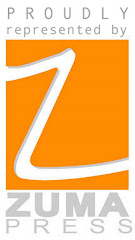A blog entry written by Bruce Reed for Slate Aug. 22 (one week before Palin's selection) offers some telling background. [One can only imagine what kind of behind-the-scenes maneuvers may have been going on within the Republican Party while McCain considered his close friend, the pro-choice Sen. Joe Lieberman, for the vice-presidential slot on his ticket...]
"Spoiler Alert: When the McCain campaign floated the idea of a pro-choice running mate, social conservatives reacted with the same outrage they've been rehearsing for 40 years: Some threatened to bolt at the convention; others said they'd rather lose the election than expand the Republican tent. 'If he picks a pro-choice running mate, it's not going to be pretty,' Rush Limbaugh warned.
But the most explosive threat comes from former right-hand-of-God Ralph Reed, in his new novel, Dark Horse, a "political thriller" that imagines this very scenario. Spoiler alert! Just hours after forcing his party to swallow a pro-choice VP, the Republican presidential nominee in Reed's pot-boiler is brutally murdered by radical Islamic terrorists at the GOP Convention. Reed's implicit threat to Republican candidates: The Christian right has so much power, they can even get someone else's God to strike you down.
Reed doesn't just kill off the character who named a pro-choice running mate—he has the running mate go on to destroy the Republican Party... With the pro-choice figure—an African-American war hero named David Petty—now at the top of the Republican ticket, evangelical leaders throw their support behind Calif. Gov. Bob Long, who just lost the Democratic nomination at a brokered convention and decided to run as an independent after going through a religious conversion in the chapel of the hospital where his daughter nearly lost her baby."
Speaking of Ralph Reed, when did the Christian right's homophobe-lite pretty boy get absolved from his involvement in the Jack Abramoff scandal as a no-ethics lobbyist "humping in corporate accounts"?
For all the amnesiacs out there, I recommend consulting Mother Jones 2004 summary of Ralph Reed's better business practices and ask yourself if this is the sort of low-grade scum you want dictating America about its ethics or politics.
Mother Jones wrote, among other info, "Reed's value to corporate America has been enhanced by his close ties to the Bush administration and especially to Karl Rove, the president's chief political guru. Not long after Century Strategies started, Rove reportedly helped Reed land an Enron contract worth at least $300,000 to help build support for energy deregulation... Among Reed's clients is Channel One, a company that provides television equipment to schools in exchange for airing 10 minutes of news and 2 minutes of commercials daily. Prominent conservatives have blasted the company for exposing children to junk-food ads and explicit movie promos. In response, Channel One turned to Reed, who in 2002 helped the company deflect a proposed Texas Board of Education resolution that would have urged schools to jettison Channel One."















